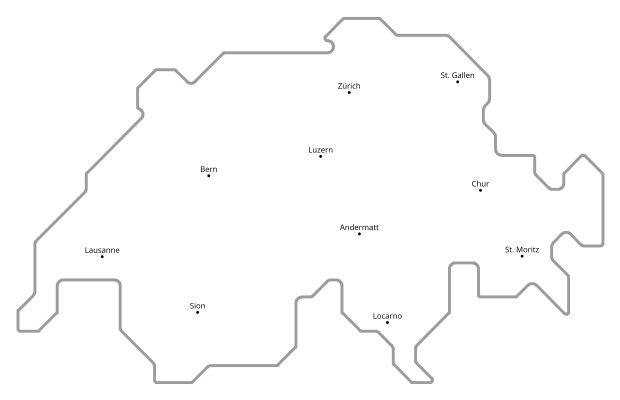Contents
Open Master theses
(Master thesis - 6 months)
Title: Changes of the composition of Phytophthora communities along an altitudinal gradient in the Alps
Supervisor: Simone Prospero (simone.prospero(at)wsl.ch)
Start: open
Language: German or English
Description of the project: The oomycete genus Phytophthora includes some of the most famous and severe pathogens in natural and semi-natural forest ecosystems. Phytophthora species are widespread, relatively abundant, very diverse, and poorly understood in many relatively undisturbed forest ecosystems. The aim of this study is to characterize Phytophthora communities along altitudinal gradients in the Swiss Alps. For this, samples will be taken in the soil and in rivers/streams to compare species distribution in the two substrates. At each sampling site, the local vegetation will also be assessed. In the laboratory, Phytophthora will be isolated from the collected samples and identified to species by Sanger sequencing of ITS. Phytophthora communities will then be characterized and compared among substrates and altitudes.
Title: Temporal dynamics of Armillaria populations in the Swiss Alps
Supervisor: Simone Prospero (simone.prospero(at)wsl.ch)
Start: open
Language: German or English
Description of the project: The basidiomycete genus Armillaria has a worldwide distribution and plays a central role in the dynamics of numerous woody ecosystems, including natural forests, tree plantations, orchards, vineyards, and gardens. All Armillaria species are capable of degrading dead woody substrates causing white rot and some species exhibit a parasitic ability and can be considered as facultative necrotrophs. In Switzerland, the preferentially saprotroph A. cepistipes is the most common species in coniferous stands where it frequently co-occurs with the pathogenic species A. ostoyae. Twenty years ago, we characterized the structure (number and distribution of genotypes) of three populations of both species in the southern Swiss Alps. This project aims at resampling the same three populations and assess eventual temporal changes in their composition. Activities include rhizomorph sampling in the field, Armillaria isolation, DNA extraction and microsatellite genotyping.
Title: Zeitliche und räumliche genetische Diversität von RNA-Viren der Pilz-Gattung Armillaria infizieren
Projecttype: Master thesis (also possible in a smaller size as a Bachelor thesis or semester project)
Supervisor: Renate Heinzelmann (renate.heinzelmann(at)wsl.ch)
Start: Any time in 2024
Language: German or English
Description of the project: The basidiomycete genus Armillaria is widespread in Switzerland and represented by five different species. Armillaria fungi are very efficient decomposers of dead wood in forest ecosystems, but also dreaded parasites on living trees that can cause root rot in most tree species. Recently, our laboratory identified 21 RNA viruses in a large collection of Swiss Armillaria isolates (Shamsi et al. 2023), with some of these viruses found in different decades and in multiple Armillaria species. In a follow up project, the spatial and temporal genetic diversity of RNA viruses in Armillaria species in Switzerland will be investigated.
This project provides an excellent opportunity to obtain training in working in a state-of-the-art molecular laboratory and to gain experience in working with RNA and performing cDNA synthesis, PCR and Sanger sequencing. In addition, skills in data handling and analysis (including reconstruction of phylogenetic trees) can be acquired. A Master Thesis may also include some field work and microbiological lab work.
No previous knowledge of Armillaria fungi or viruses is required.
References:
Shamsi W., Heinzelmann R., Ulrich S., Kondo H., Cornejo C. (2023) Decoding the RNA virome of the tree parasite Armillaria provides new insights into the viral community of soil-borne fungi. (In press Environmental Microbiology)
Open Bachelor theses
(Bachelor thesis - 3 months)
Currently there are no open BA-theses.
Open Semester projects
(semester project, 3 months)
Currently there are no open semester projects.
